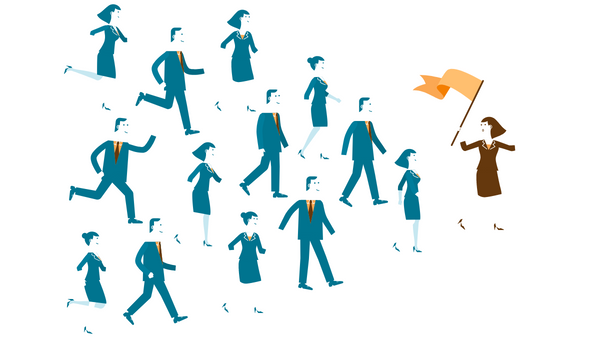Everyone has their own story of Covid-19 and it’s these stories that bring meaning to the numbers we are still confronted with on a daily basis. Sharing our stories helps us get in touch with the human reality that underlies the cold statistical reality.
Whilst the numbers are aggregated, the stories can’t be; there is no universal experience to be found because we all have a different context wrapped around our lives. It was with this recognition that there are as many different experiences of Covid-19 as there are people that we set out during the winter of 2020-21 to listen to these stories.
Through our community enquiry we explored the differing realities and responses to Covid-19 across the UK. We heard how people’s pre-Covid-19 reality was crucial to the impact they experienced. We heard about the impact it was having on people’s day-to-day lives. And we invited people to raise their eyes to a horizon beyond Covid-19 and heard about hopes and aspirations for the future.
We realised that the art of our enquiry was to find a way to offer the stories we heard as a provocation for others to engage with. A mirror against which to reflect our own experiences. To confront our reality by reflecting against that of others. So we did no analysis or synthesis of others’ experiences, as it would have been disingenuous to attempt to do so.
Instead, we have tried to visualise a landscape across which people have been travelling, and sought to point out some of its core features.
How were we navigating change before the pandemic?
We set out to explore the extent to which the pre-existing conditions, foundations and infrastructure in people’s individual lives, local communities and institutions impacted their ability to respond to crises and disaster in general and to the Covid-19 pandemic in particular.
We thought that communities would vary in their characteristics and that these variations would be a critical determinant of the impact of Covid-19.
Different starting points
The different contexts and situations we all found ourselves in before the pandemic proved critical in our ability to meet the challenges of the pandemic, quickly and responsively. The same is true for the communities we live in, the organisations we engage with or the companies we work for.
Clouds of austerity
A decade of severe cuts to public services has seen central Government funding of Local Authorities halved. This has made it harder to access vital services and either driven up demand or disengaged communities from attempting to use services to get the help they need. More people than ever are living in poverty or under volatile circumstances. This is a tough starting point from which to cope with the shock of a pandemic.
Peaks of power and privilege
Many have been historically well served by the current economic and political systems, benefitting from a sustained period of economic growth and accumulating power and resources. This is an advantageous starting point from which to navigate uncertainty and to cope with shock.
Old world inertia
We tend not to like change. We tell ourselves we are happiest with what we know, even if it’s not good for us, because to acknowledge otherwise is to realise the need to act and change things. The gravitational pull of the status quo is a powerful one, particularly as those who benefit the most from it are incentivised to keep things as they are.
Lake of latent energy
We all have the ability to create change through our individual and collective agency. Often the desire for change lies dormant, perhaps because we don’t have the time or energy or motivation to act. Yet it is the resource that can create change when it is released. And nothing releases our energy for change like an inciting incident – a crisis. This is why communities who have historically experienced adversity and trauma such as wars, migration, and natural disasters are also those with the most resilience and inertia for change.
Castles of command and control
We have traditionally organised our response to social challenges in service silos that are accountable to ministers in Whitehall rather than by devolving real power to local public services and people. Command and control management characterises the government’s approach to delivery and disenfranchises communities and those furthest from decision-makers.
How are we navigating the transitional space opened up by the pandemic and other crises?
We set out to see how the pandemic has impacted upon different communities and individuals, to hear their stories of change. We wanted to relate this to the pre-existing conditions to see what, if any, relationship there was with the impact of the pandemic.
We thought that a range of strong foundations would be a characteristic of more resilient communities and that those most impacted by austerity and with fewer foundations would be hardest hit. We wanted to explore our insight that the period since the crisis hit has placed us all in an extended liminal space – that doesn’t look like what was before, nor what might be coming.
Different crises
We are experiencing a range of emotional responses to the pandemic as time goes by. For many, this is layered on top and directly connected to existing crises – of racial justice, climate crisis, poverty or flooding. The pandemic has amplified these existing crises, reinforcing that we are all part of a complex living interconnected system. The long-term consequences of these crises are unknowable.
Deep fault lines
We still have systems of education, healthcare, work and public service predicated on what worked for 18th century manufacturing rather than the networked and digital 21st century. Covid-19 has ruptured that, revealing the shortcomings of many of our customs and practices as well as deeper social, political, ecological and economic inequalities. These fault-lines were previously hidden to many and ignored by others but are now revealed more widely.
Magic money forest
Two recent UK prime ministers said ‘there is no magic money tree’, equating management of the nation’s finances with managing our own household finances. Many have noted this is a fallacy, and the fiscal response to the pandemic shows that where there’s a will there is a way. However, access to the forest’s resources is still largely privileged.
Temporary solutions
Many interventions are only ever intended to be a temporary response to a crisis. Some will be exploited by those with power, some will become permanent changes, whilst others might turn out to be innovations worth hanging on to and amplifying. It is vital we can spot the difference.
Fog of ambiguity
The space between what was familiar before the pandemic and a new reality after it can be ambiguous and often uncomfortable. To try and cope in this liminal space we are forced to confront our own desire for certainty and control. We are likely to need different ways of thinking, acting and being. Perhaps a core challenge is focusing more on navigating the journey and less on achieving a specific destination.
Streams of energy
Any crisis disrupts the status quo and change becomes more likely. Indeed, a disaster response is often characterised by a surge of solidarity and action towards a compelling shared mission and purpose. This release of our individual and collective energy and assets fuels the possibility of change, a counterforce to the desire to revert back to the way things were before.
How could we navigate the emerging futures?
We set out to see if people were already turning their minds to the future, to a world after the pandemic, and if so, what changes they wanted to see emerge.
We thought that there would be a range of different ambitions for the future and that these would be place and context specific. We also anticipated that such ambitions might be tempered by loss and fatigue and a desire for things to ‘return to normal’.
Flotilla of different boats
We are all preparing to sail into an emerging future, yet we do so in different boats. A minority have luxury yachts while most have smaller vessels with varying degrees of sea-worthiness. Some people have clustered together to build a raft while others are marooned in some long-forgotten Covid-19 backwaters. Something needs to be done.
Redistributed investment
Covid-19 reveals what happens when you remove the mechanisms that used to allocate public funding to local areas on the basis of need. Poorer places and communities received the biggest funding cuts and have now been the hardest hit by the pandemic. Fair mechanisms of distributing support are needed now more than ever, not only to support the recovery but also to increase the resilience of people and places to future shocks.
Redesigned systems
The pandemic offers the space and potential to rethink the things we value and the ways we organise as a society. New systems are essential if we are to respond effectively to future challenges and enable people to lead fulfilling lives. As we emerge from the worst of the pandemic we will be faced with opportunities to test out new approaches to the issues we face.
Changing perspectives
The world is complex and not every challenge we face can be fully understood and resolved. As we emerge into a changed world after the pandemic, we will face the need to change the way we do certain things as a result. However, any efforts at change face resistance. Some of us like things the way they are or the way they used to be. Others don’t like risk or things that are untried and untested. We will need to overcome resistance to change if we are to meet the needs of the future.
Crises on the horizon
All change involves losing something along the way and finding ways to mark transformation and loss is an important part of transitioning to the new. Some have experienced the loss of hopes, savings, goals, confidence, careers. Yet Covid-19 will be remembered for the tens of thousands of people who lost their lives. Not only has the pandemic amplified the crises that many were already experiencing in their lives, but it will also be the catalyst for future crises such as mental health and unemployment. Further crises will only emerge with the hindsight of time.
Beacons of hope
In any crisis and period of turmoil the possibility of innovation and change emerges. Perhaps this is driven by necessity, scarcity or opportunity. Tangible, practical activities that show promise for the future need to be spotted and harnessed. A core task might be to free our individual and collective imaginations from the constrains of the past and the busyness of the present, in order to reimagine the future. Perhaps if we can individually and collectively dream a little we can shine a beacon of hope into our emerging future.
The storm may be the same, but the means we all have of riding it out vary in ways we can often barely comprehend. We invite you to engage with the content and explore it for yourselves.
Related articles
-
Prediction Fiction
Feature
Madeline Ashby
A futurist-novelist explains how strategic forecasting helps build better tomorrows by facing the truths of today
-
Honest labour
Feature
Emmet McNamee
With many workers pushing for their companies to have a positive impact on the biggest issues society faces, McNamee explores what workers need to maximise their collective power.
-
The incomplete leader
Comment
Justin Russell
Justin Russell reflects on his podcast series, Lessons in Leadership, on good leadership in the public sector




Be the first to write a comment
Comments
Please login to post a comment or reply
Don't have an account? Click here to register.